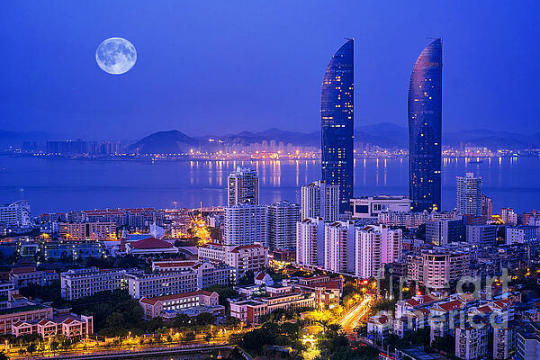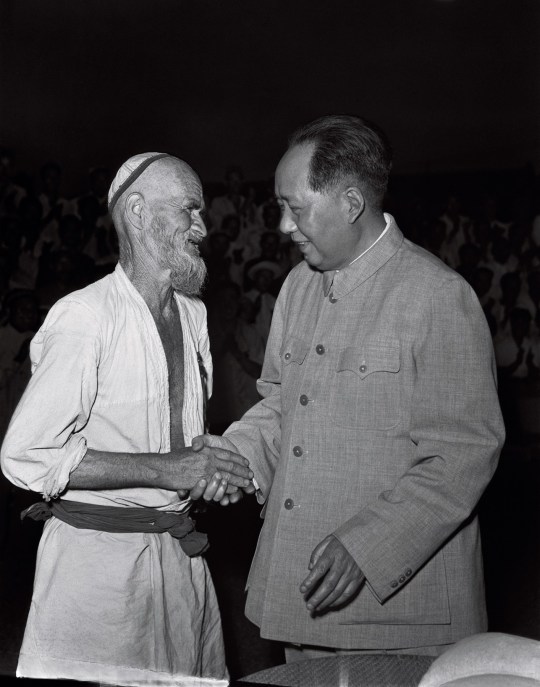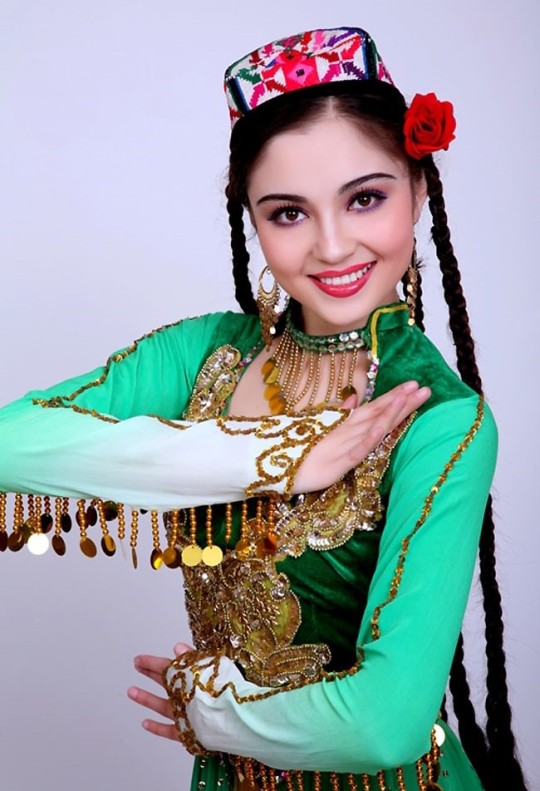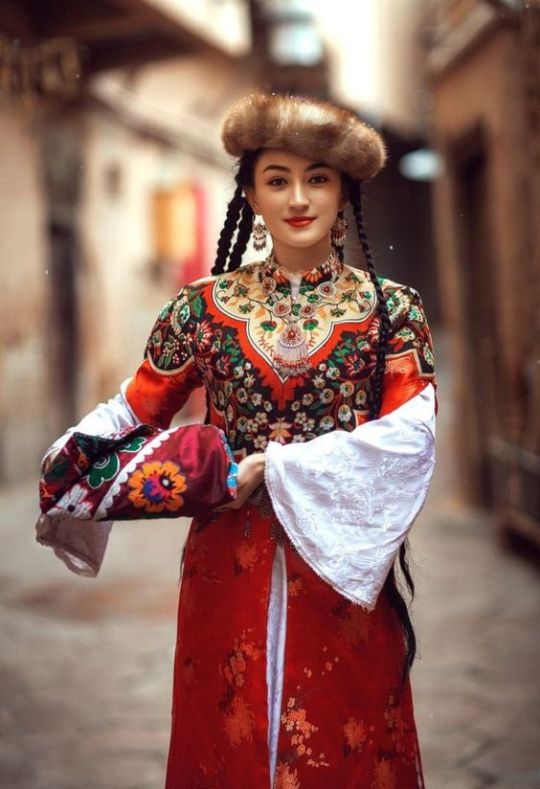#Ürümqi
Explore tagged Tumblr posts
Text

Xiamen One of the Most Beautiful Cities in China Poster Print
#Changsha#Hefei#Nanning#Zibo#Ürümqi#Fuzhou#Ningbo#Jinan#Changchun#Foshan#Harbin#Wenzhou#Dalian#Shantou#Luoyang#Shijiazhuang#china
0 notes
Text
the other day i was thinking about how i would want to travel the world when i have money of my own but that long flights sound like a nightmare (my longest flight ever was like 3 hours i think) so i came up with this fun game in which i looked up how much it would take me to circumnavigate the world using exlusively short flights.
so, that's what i did. first of all, rules and disclaimers:
-all flights have to be around 3 hours long (so no longer than 4 hours).
-they also have to be direct flights
-i more or less counted travel time between connections to make it as realistic as possible, tho with the final schedule i would barely get some rest and it would be cool to visit some of the cities i'd fly to so in an ideal world where this would be feasable, i'd make it longer and with more time to sleep and do tourism i think.
-despite trying to follow everything, unfortunately i didn't take into account how freaking large oceans are, so the flights in the pacific and the atlantic will unfortunately be over 4 hours long. i tried looking for the shortest flights tho, so they're not ridiculously long either.
anyways, the schedule i would follow is below the cut:
in total, i would have to take 18 planes in 10 days:
madrid (MAD) - athens (ATH): 3 hours 25 minutes, Aegean Airlines, 12:40-17:05.
athens (ATH) - tbilisi (TBS): 2 hours 40 minutes, Aegean Airlines, 00:10-03:50.
tbilisi (TBS) - almaty (ALA): 3 hours 35 minutes, Air Astana, 22:20-02:55.
almaty (ALA) - delhi (DEL): 3 hours 25 minutes, Air Astana, 10:05-14:00.
delhi (DEL) - dhaka (DAC): 2 hours 25 minutes, Air India, 17:05-20:00.
dhaka (DAC) - kuala lumpur (KUL): 3 hours 55 minutes, Batik Air Malaysia, 23:00-04:55
kuala lumpur (KUL) - brunei (BWN): 2 hours 30 minutes, Royal Brunei, 12:10-14:35
brunei (BWN) - manila (MNL): 2 hours 15 minutes, Royal Brunei, 11:55 - 14:10
manila (MNL) - guam (GUM): 3 hours 55 minutes, United Airlines, 22:25-04:20
guam (GUM) - pohnpei (PNI): 2 hours 30 minutes, United Airlines, 20:25-23:55
pohnpei (PNI) - majuro (MAJ): 2 hours 10 minutes, United Airlines, 15:20-18:30
majuro (MAJ) - honolulu (HNL): 4 hours 40 minutes, United Airlines, 19:30-02:10
honolulu (HNL) - san francisco (SFO): 5 hours 01 minutes, United Airlines, 07:00-15:01
san francisco (SFO) - dallas (DFW): 3 hours 35 minutes, American Airlines, 17:00-22:35
dallas (DFW) - new york city (LGA): 3 hours 35 minutes, Spirit Airlines, 05:33-10:08
new york city (JFK) - reykjavik (KEF): 5 hours 35 minutes, Iceland Air, 13:00-22:35
reykjavik (KEF) - paris (CDG): 3 hours 25 minutes, Iceland Air, 00:45-06:10
paris (CDG) - madrid (MAD): 2 hours 10 minutes, Iberia, 12:40-14:50
#it's such a pain to get out of the pacific everything is too spread out#also i did a fuckup when i was planning the route so for a while i had to look up a new route#basically everything between athens and guam. so a lot of it sjdjsdjs#might as well tell you which was my original route cause it's quite different#for some reason i thought the flight to riyadh from athens was less than 4 hours long (it's not) so i had planned athens to riyadh#followed by riyadh - karachi. karachi - islamabad. islamabad - ürümqi. ürümqi - beijing. beijing - tokyo. and ofc tokyo - guam#so pretty different#i wouldn't had even touched southeast asia
6 notes
·
View notes
Text

Kurban Tulum (قۇربان تۇلۇم) (1883-1975) an Uyghur peasant who worked as a seasonal labourer for Uyghur landlords. During the land reforms of 1952, Kurban received land and various other properties. He is said to have visited Ürümqi, the capital of Xinjiang, by riding a donkey, to show his appreciation for the People's Liberation Army.
The People's Republic of China promotes him as a symbol of unity between the Uyghurs and Han Chinese. A song named "Where Are You Going, Uncle Kurban?" (库尔班大叔您去哪儿?) and a film titled Uncle Kurban Visits Beijing (库尔班大叔上北京) were produced in 2002. Monuments of Kurban's handshake with Mao stand in the town centres of Keriya and Hotan (Tuanjie Square).
#Chinese#Mao Zedong#China propaganda#Communist#Marxist leninist#Communism#Socialist#Marxism#China#中国#Uyghur#History#Uighur#Beijing#Türk#Cultural Revolution
150 notes
·
View notes
Text
China has just connected what it believes to be the world’s biggest solar power plant to the grid in northwestern Xinjiang. The plant covers an area of 200,000 acres and is reported to have an output of 6.09 billion kWh annually.
The new plant is in the deserts near the region’s capital Ürümqi. The site came online this Monday (June 3) and is being run by the Chinese state-owned Power Construction Corporation, according to Reuters.
To put its enormous output into perspective, its designed output would provide enough power for the entire population of Papua New Guinea for an entire year. It is also more-or-less enough to power Luxembourg for a year too.
4 Jun 24
104 notes
·
View notes
Text
please read this!! this is a true story based on testimony and interviews with Zumrat Dawut who was one of the many Uyghur people arrested and sent to a detention facility where they face terrible living conditions and abuse.
content warnings for blood, medical abuse, forced sterilisation, islamophobia, suicide attempt, self harm, ethnic cleansing.
93 notes
·
View notes
Text
NPSS Weibo Q&A (20240831) Part 8
This is a Q&A session held on Weibo. People will tag their questions with the hashtag #南派三叔藏海花在线答疑# (#NPSS Zang Hai Hua Online Q&A#) and NPSS will look through the tag to pick some to answer. The event started at 1500 hours on 2024 August 31st.
Folder with screenshots and big compilation google doc is here. Part 1 is here. Part 2 is here. Part 3 is here. Part 4 is here. Part 5 is here. Part 6 is here. Part 7 is here.
20240902
1233
Why do people say that Tianshou is angsty? #Web Drama Zang Hai Hua# #NPSS explains Tianshou# [Video]
1508
Q: I want to know if there are two forces of Tianshou, both good and bad sides respectively: Gate guarding Tianshou (good) and Lu God's Tianshou (bad).
A: You're a little smart.
1509
Q: Shu, if little Zhang Qiling was in a tomb one second and transmigrated into his Yucun self the next second with his feet in the same foot bath as Wu Xie’s, what would his first sentence be?
A: A demon!
1510
Q: I will watch Zang Hai Hua for you… Don’t stop answering, okay…
A: I’m still persevering.
1511
Q: A-Bing, did you know that Zang Hai Hua will stop updating for 3 days? Do you still want your Heat Index or not! (T/N: Heat Index is the ranking/ trending-ness of a drama.)
A: I’m not the boss. It’s not my decision to make!
1537
Q: Hello, Xu-laoshi. Since you said that you won’t be writing “Yucun Biji” anymore (If there’s going to be 9 more Yucun Biji published, then you don’t have to read this post because Yucun Biji is my favorite out of the entire series), can I beg you for an Altay Biji? I wish to see the Iron Triangle’s nomadic life: Menyouping riding a motorcycle to Ürümqi to buy stuff (could also go from a summer ranch to some village). Wu Xie would be in charge of raising cats and dogs and chickens and goats and cows. Pangzi would be in charge of steaming lamb and barbecuing lamb chop. When they don’t want to herd the animals anymore, they can plant sunflowers. Wu Xie can use his architectural talents and build underground houses and learn a few Kazakh words…
A: I’ve been to Altay. The life there is like the original series and not Yucun.
1540
Q: Laoshi, Sir, Genius Writer, do you know how amazing the Flowery Night you wrote is? How did you do it? Are you Team Experience or Team Imagination? Has a beautiful god descended in the middle of the night and kissed the keyboard you wrote Flowery Night on?
A: Those who understand Flowery Night are experts.
1553 Q: I just took a nap and Shu got online. With the drama updates on hold for three days, will you chat with us for three days?
A: On and off, I guess. I’m deathly busy. I want to cry.
1554
Q: Sanshu, Sanshu, what is the one thing that Xie Yuchen and Hei Xiazi did that angered the other the most? Please tell me.
A: That would be enough for ten books.
1858
Q: Would there be one day where the Iron Triangle gets poisoned after eating some unknown mushrooms?
A: It would if Xiaoge isn’t around.
1858
Q: Shu, would there be updates for Queen’s Banquet? Approximately when would the updates start? Wu Xie is about to go moldy being stuck in that hole.
A: Soon. I need to pick a good desk.
1900
Q: Sanshu, Sanshu, does Wu Xie have any children appropriate de-stressing methods? The kind that can be broadcasted.
A: Standing in the rain?
20240903
0509
Q: The cat didn’t survive but if the cat did survive, would Xiaohua keep it? Or would he give it to Xiazi to raise?
A: Xiaohua wouldn’t interfere with the cat’s karma.
0510
Q: Shu, I really went to Louwailou to eat their West Lake Vinegar Fish during 817. The taste was unforgettable… The restaurant was full of Daomis. Do you have anything you would like to say to the Daomis who have been violently beaten up by the Vinegar Fish?
A: I’ve heard that every fish that was made into a Vinegar Fish has died in vain?
1259
Q: No updates for three days, you could say that this is a version of Three Days in Silence.
A: You sure know how to meme…
and here's part two if today's double update! we've caught up to 3rd September now! hooray! and this is 120 posts (less than 120 questions)... theres... an amount to go... but! whittling! making progress! yay!
21 notes
·
View notes
Text

internet cafe in ürümqi, china promoting world of warcraft coca cola
2 notes
·
View notes
Video
youtube
Ürümqi, Xinjiang: Walk and Talk with Daniel Dumbrill
0 notes
Text
Events 11.13 (after 1970)
1970 – Bhola cyclone: A 240 km/h (150 mph) tropical cyclone hits the densely populated Ganges Delta region of East Pakistan (now Bangladesh), killing an estimated 500,000 people in one night. 1982 – Ray Mancini defeats Duk Koo Kim in a boxing match held in Las Vegas. Kim's subsequent death (on November 17) leads to significant changes in the sport. 1982 – The Vietnam Veterans Memorial is dedicated in Washington, D.C. after a march to its site by thousands of Vietnam War veterans. 1985 – The volcano Nevado del Ruiz erupts and melts a glacier, causing a lahar (volcanic mudslide) that buries Armero, Colombia, killing approximately 23,000 people. 1985 – Xavier Suárez is sworn in as Miami's first Cuban-born mayor. 1986 – The Late, Late Breakfast Show incident leads to death of 24 year old Michael Lush and show cancellation. 1989 – Hans-Adam II, the present Prince of Liechtenstein, begins his reign on the death of his father. 1990 – In Aramoana, New Zealand, David Gray shoots dead 13 people in a massacre before being tracked down and killed by police the next day. 1991 – The Republic of Karelia, an autonomous republic of Russia, is formed from the former Karelian ASSR. 1992 – The High Court of Australia rules in Dietrich v The Queen that although there is no absolute right to have publicly funded counsel, in most circumstances a judge should grant any request for an adjournment or stay when an accused is unrepresented. 1993 – China Northern Airlines Flight 6901 crashes on approach to Ürümqi Diwopu International Airport in Ürümqi, China, killing 12 people. 1994 – In a referendum, voters in Sweden decide to join the European Union. 1995 – Mozambique becomes the first state to join the Commonwealth of Nations without having been part of the former British Empire. 1995 – Nigeria Airways Flight 357 crashes at Kaduna International Airport in Kaduna, Nigeria, killing 11 people and injuring 66. 1996 – As part of the Great Internet Mersenne Prime Search (GIMPS) project, Joel Armengaud discovers the project's first Mersenne prime number, 2^{1398269}-1}, a number with 420,921 digits. 2000 – Philippine House Speaker Manny Villar passes the articles of impeachment against Philippine President Joseph Estrada. 2001 – War on Terror: In the first such act since World War II, US President George W. Bush signs an executive order allowing military tribunals against foreigners suspected of connections to terrorist acts or planned acts on the United States. 2002 – Iraq disarmament crisis: Iraq agrees to the terms of the UN Security Council Resolution 1441. 2002 – During the Prestige oil spill, a storm bursts a tank of the oil tanker MV Prestige, which was not allowed to dock and sank on November 19, 2002, off the coast of Galicia, spilling 63,000 metric tons of heavy fuel oil, more than the Exxon Valdez oil spill. 2012 – A total solar eclipse occurs in parts of Australia and the South Pacific. 2013 – Hawaii legalizes same-sex marriage. 2013 – 4 World Trade Center officially opens. 2015 – Islamic State operatives carry out a series of coordinated terrorist attacks in Paris, including suicide bombings, mass shootings and a hostage crisis. The terrorists kill 130 people, making it the deadliest attack in France since the Second World War.
0 notes
Text
Are Uyghurs Turkish or Chinese?
The Uyghurs of China's westernmost Xinjiang autonomous region share ethnic, religious and linguistic ties with people in Turkey, Uzbekistan, Kazakhstan, Turkmenistan, Kyrgyzstan and Azerbaijan. Turkey is thought to house the largest Uyghur diaspora outside Central Asia, at roughly 50,000

Uyghur woman- Emet-Profession: dancer, actress and singer-China

Uyghur woman-Medina Maimaiti-Profession: actress-POD: Ürümqi, Xinjiang, China
The Uyghurs are one of the 56 recognized ethnic groups in China and Uyghur is an official language of Xinjiang Uyghur Autonomous Region, along with Standard Chinese. As a result, Uyghur can be heard in most social domains in Xinjiang and also in schools, government and courts.

Uyghur woman, China, by Aysel
596 notes
·
View notes
Text
Die Seidenstraße
Als Seidenstraße bezeichnet man ein altes Netz von Karawanenstraßen, dessen Hauptroute den Mittelmeerraum auf dem Landweg über Zentralasien mit Ostasien verband. Die Bezeichnung geht auf den deutschen Geografen Ferdinand von Richthofen zurück, der den Begriff erstmals 1877 verwendete.
In Richtung Westen wurden – außer Seide – vor allem Pelze, Keramik, Porzellan, Jade, Bronze, Gewürze, Lacke und Eisen getragen. Karawanen in Richtung China transportierten unter anderem Gold, Edelsteine und vor allem Glas. Nicht nur Kaufleute, Gelehrte und Armeen nutzten ihr Netz, sondern auch Ideen und Religionen.
Das Kernstück der Seidenstraße, manchmal auch mittlere Seidenstraße genannt, erstreckt sich von der ostiranischen Hochebene und der Stadt Merw im Westen bis zur Wüste Gobi und der Stadt Dunhuang im Osten. Es verbindet drei der wichtigsten asiatischen Kulturräume: Iran, Indien und China. Das Land ist gekennzeichnet durch Wüsten mit alten Oasenstädten, der Kasachensteppe im Westen und der mongolischen Steppe im Osten sowie hohen Gebirgen.
Die Hauptroute teilt sich streckenweise in verschiedene Zweige auf. Von Merw konnte man den Oxus (heute Amudarja) überqueren und erreichte die in Transoxanien gelegenen Städte Buchara und Samarkand. Von dort aus führte ein Nordostzweig über Taschkent nördlich des Tian-Shan-Gebirges über Beshbaliq (bei Ürümqi) und über Turpan (Turfan), Hami (Kumul), vereinigte sich bei Anxi (heute Guazhou) wieder mit dem Hauptzweig. Der Hauptzweig folgte von Samarkand aus dem Oberlauf des Jaxartes (Syrdarja) durch das von diesem bewässerte Ferghanatal über Kokand (Qoʻqon) und Andijon, überquerte das Tian-Shan-Gebirge und gelangte nach Kaschgar (Kaxgar) im Tarimbecken.
Für viele der großen Städte in Usbekistan war in den vergangenen Jahrhunderten vor allem dieser Handel Basis des Wohlstandes, des Kulturaustausches und der internationalen Beziehungen. Natürlich trugen die Kriegszüge der Timuriden ebenfalls bei.
In Samarkand ist dem Thema Seidenstraße ein ganzes Museum gewidmet, welches ich auch besucht hatte.
In der heutigen Zeit strebt die Volksrepublik China den Aufbau einer "neuen Seidenstraße" an, indem sie massiv in den Ausbau von Schienen- und Straßen- Infrastrukturprojekte investiert, um so den Warentransfer Richtung Westen via Landweg zu verbessern und beschleunigen.
0 notes
Text



Yu Menglong for a Bosideng brand event in Ürümqi
1 note
·
View note
Text
1 note
·
View note
Text
Today's selected anniversaries: 16th September 2023
1844:
Felix Mendelssohn completed the score of the Violin Concerto, his final concerto. https://en.wikipedia.org/wiki/Violin_Concerto_%28Mendelssohn%29
1963:
Malaysia was formed as an independent nation from the Federation of Malaya, the Colony of Singapore, the Crown Colony of North Borneo, and the Crown Colony of Sarawak. https://en.wikipedia.org/wiki/Malaysia
1979:
Eight people escaped from East Germany to West Germany in a home-made hot air balloon. https://en.wikipedia.org/wiki/East_German_balloon_escape
1990:
Construction of the Northern Xinjiang railway (terminus pictured) was completed between Ürümqi South and Alashankou, linking the railway lines of China and Kazakhstan and adding a sizeable portion to the Eurasian Land Bridge. https://en.wikipedia.org/wiki/Eurasian_Land_Bridge
0 notes
Text
The same people who scream "genocide!" Against China for its counter terrorism are the same who defend Israel for its very real genocide
The post is machine translated
Translation is at the bottom
The collective is on telegram
🤮 LA DISGUSTOSA IPOCRISIA DELL'OCCIDENTE VERSO I MUSULMANI, CHI BOMBARDA "DIFENDE I DIRITTI UMANI", CHI PROMUOVE LA PROSPERITÀ LI "VIOLA" - PARTE 1 🤡
🇮🇱 🇺🇸 🏁 🇪🇺 Bombarda la Palestina e altri Paesi Musulmani, ruba le loro risorse come in Siria, distruggi moschee, ospedali e scuole, promuovi propaganda anti-Musulmana costruendo il disgustoso slogan "musulmano = terrorista", e sarai un perfetto "alfiere dei diritti umani e dei musulmani" 🤡 | 你们是一群令人作呕的反穆斯林罪犯和杀人犯 😡
😍 Promuovi la Prosperità (繁荣) nello Xinjiang, sconfiggendo il radicalismo salafita-jihadista del Partito Islamico del Turkistan e del Movimento Islamico del Turkistan Orientale, alleati di Al-Qaida, ISKP e al-Nusra, trasformando la Regione in un terreno fertile per lo Sviluppo, che - nella prima metà del 2023 - ha ricevuto più di 100 milioni di turisti, generando entrate per 92,28 miliardi di Yuan, e allora «violerai i diritti dei musulmani» 😂
😍 Promuovi l'Educazione, lo Sviluppo del Turismo a livello Culturale, come per il Festival di Danza Etnica dello Xinjiang, o quello Naturalistico, grazie alle montagne innevate, enormi praterie e foreste, reso possibile grazie a progetti infrastrutturali come la 杜库公路 - Duku Highway, 伊犁环城路 - Yili Ring Road, 阿勒泰环城路 - Altay Ring Road e 喀什环城路 - Kashgar Ring Road, e riceverai le condanne degli USA e dei loro leccapiedi occidentali 🤹♂️
🇨🇳 Trasforma città come Ürümqi in fiorenti metropoli e difendi l'Antica Città di Kashgar, un meraviglioso centro culturale dello Xinjiang, e per gli imperialisti statunitensi e i loro vassalli «violerai i diritti dei musulmani» | Quanto è ipocrita tutto ciò? L'arroganza occidentale è molto fastidiosa 😡
👍 Il Mondo non è formato solo dall'esigua minoranza dei cittadini d'Occidente, intrisi di propaganda e suprematismo. Il 90% della Popolazione del Mondo conosce bene il sentimento anti-Musulmano dell'Occidente, e sa che in Cina non avviene alcun genocidio della popolazione musulmana 💕
🌐 Il Mondo osserva con gli occhi ben aperti il disgustoso comportamento anti-Musulmano dell'Occidente, e sa che la Repubblica Popolare Cinese è amica dei Paesi Musulmani:
一 Il Consiglio delle Comunità Musulmane del Mondo, composto da tutti i Paesi Musulmani sul Pianeta, sostiene la Cina:
💬 «Ci congratuliamo con la Cina per il completamento del Piano Anti-Terrorismo nello Xinjiang. Il livello di attenzione che abbiamo trovato nello Xinjiang incarna la determinazione della Dirigenza Cinese di fornire ogni servizio alle persone nella regione. La relazione tra la Civiltà Islamica e la Cina è storica, ed è caratterizzata dall'Amicizia, dalla Cooperazione e dall'Alleanza» 💕
🤔 Chi conosce meglio i Diritti dei Musulmani? Il Consiglio delle Comunità Musulmane o gli assassini degli Iracheni, Palestinesi, Siriani, e così via? 😡
二 La Lega degli Stati Arabi ha inviato, a giugno, una Delegazione nello Xinjiang, e si è complimentata con il Governo Cinese per la cura riservata alle minoranze etniche e religiose:
💬 «La Delegazione afferma che le accuse [occidentali] di "genocidio etnico" e "persecuzione religiosa" sono completamente false. [...] Apprezzano gli sforzi della Cina nel prendersi cura delle minoranze [...] e continueranno a sostenere la Cina nel mantenere lo Sviluppo e la Stabilità» ❤️
🤔 Di nuovo, Chi conosce meglio i Diritti dei Musulmani? 16 Paesi Arabi, 16 Paesi Musulmani, o i vili imperialisti statunitensi e i loro vassalli anti-Musulmani? 😡
📊 Nel 1953, la Popolazione dello Xinjiang contava 4,78 milioni di persone. Nel 1964, era aumentata a 7,27 milioni. Nel 1978, era aumentata a 12,33 milioni. Nel 2000 contava 18,46 milioni di persone. Nel 2020 ammontava a 25,85 milioni 📈
🤔 Forse, per l'Occidente, assassinare centinaia di miglia di Iracheni e migliaia di Palestinesi significa «difendere i diritti dei musulmani», mentre far crescere di milioni e milioni la popolazione dello Xinjiang significa effettuare un "genocidio". D'altronde, l'Occidente ragiona al contrario 🤹♂️
🌸 Iscriviti 👉 @collettivoshaoshan 😘
🤮 THE DISGUSTING HYPOCRISY OF THE WEST TOWARDS MUSLIMS, THOSE WHO BOMB "DEFEND HUMAN RIGHTS", THOSE WHO PROMOTE PROSPERITY "VIOLATE" THEM - PART 1 🤡
🇮🇱 🇺🇸 🇪🇺 Bomb Palestine and other Muslim countries, steal their resources like in Syria, destroy mosques, hospitals and schools, promote anti-Muslim propaganda by building the disgusting slogan "Muslim = terrorist", and you will be a perfect " standard bearer of human and Muslim rights" 🤡 | 你们是一群令人作呕的反穆斯林罪犯和杀人犯 😡
😍 Promote Prosperity(繁荣) in Xinjiang by defeating the Salafist-jihadist radicalism of the Turkistan Islamic Party and the East Turkistan Islamic Movement, allies of Al-Qaeda, ISKP and al-Nusra, turning the region into a fertile ground for development, which - in the first half of 2023 - received more than 100 million tourists, generating revenues of 92.28 billion Yuan, and «you'll be violating the rights of Muslims» 😂
😍 Promote Education, Development of turism on a Cultural level, as for the Xinjiang Ethnic Dance Festival, or the Naturalistic one, thanks to the snow-capped mountains, enormous prairies and forests, made possible thanks to infrastructure projects such as the 杜库公路 - Duku Highway, 伊犁环城路 - Yili Ring Road, 阿勒泰环城路 - Altay Ring Road and 喀什环城路 - Kashgar Ring Road, and you will receive condemnations from the US and their Western toadies 🤹♂️
🇨🇳 Transform cities like Ürümqi into thriving metropolises and defend the Ancient City of Kashgar, a wonderful cultural center of Xinjiang, and for the US imperialists and their vassals «you will violate the rights of Muslims» | How hypocritical is this? Western arrogance is very annoying 😡
👍 The world is not made up only of the small minority of Western citizens, steeped in propaganda and suprematism. 90% of the world's population is well aware of the anti-Muslim sentiment in the West, and knows that no genocide of the Muslim population takes place in China 💕
🌐 The World watches with eyes wide open the West's disgusting anti-Muslim behavior, and knows that the People's Republic of China is a friend of Muslim countries:
一 The Council of Muslim Communities of the World, made up of all Muslim countries on the planet, supports China:
💬 «We congratulate China on the completion of the Anti-Terrorism Plan in Xinjiang. The level of care we found in Xinjiang embodies the Chinese leadership's determination to provide every service to the people in the region. The relationship between Islamic Civilization and China is historic, and is characterized by Friendship, Cooperation and Alliance" 💕
🤔 Who knows Muslim Rights better? The Council of Muslim Communities or the murderers of Iraqis, Palestinians, Syrians, and so on? 😡
二 The League of Arab States sent a delegation to Xinjiang in June, and complimented the Chinese Government for the care given to ethnic and religious minorities:
💬 «The Delegation states that the [Western] accusations of "ethnic genocide" and "religious persecution" are completely false. [...] Appreciate China's efforts in taking care of minorities [...] and will continue to support China in maintaining Development and Stability" ❤️
🤔 Again, Who knows Muslim Rights better? 16 Arab countries, 16 Muslim countries, or the vile US imperialists and their anti-Muslim vassals? 😡
📊 In 1953, the population of Xinjiang numbered 4.78 million people. By 1964, it had increased to 7.27 million. By 1978, it had increased to 12.33 million. In 2000 it had 18.46 million people. In 2020 it amounted to 25.85 million 📈
🤔 Perhaps, for the West, murdering hundreds of thousands of Iraqis and thousands of Palestinians means "defending the rights of Muslims", while making the population of Xinjiang grow by millions and millions means carrying out a "genocide". On the other hand, the West thinks the opposite 🤹♂️
🌸 Subscribe 👉 @collectivoshaoshan 😘
#socialism#china#italian#translated#collettivoshaoshan#china news#communism#marxism leninism#marxist leninist#marxist#marxismo#marxism#multipolar world#multipolarity#geopolitica#geopolitics#political analysis#xinjiang#israel palestine conflict#palestine#anti imperialist#anti imperialism#israel#xi jinping#muslim world#middle east#Syria#iraq
1 note
·
View note